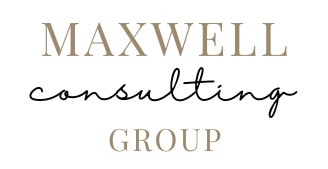“We want to develop an ESG strategy. But first things first- I’m not sure we understand ESG. What does it mean for our organization?”
Maybe you’ve heard of it. Read an article. Saw a competitor in your industry publish an ESG report. But what exactly is ESG?
Although corporate social responsibility and shared value has been around for a while, ESG is steadily emerging as a best practice framework in responsible business. ESG as we know it today was highly influenced by the UN Global Compact Who Cares Wins Report from 2005. Originally gaining momentum in the finance industry (as it relates to asset management and financial research), we now see ESG traction across multiple sectors.
Defining ESG
- ESG stands for Environment, Social, Governance, and It’s a method that explores responsible business practice by evaluating a company’s impact (positive/negative/neutral) in the world, opportunities it could explore to be a force for good, and investigating where it is at risk or causing societal harm.
- It challenges that organizations have a greater responsibility to benefit the world. At the Maxwell Consulting Group, we call this business with a soul.
- ESG is not limited to a specific industry, and is now used across public, private, and non-profit sectors.
- ESG engages a specific set of criteria where each organization uses a materiality assessment to identify which are most relevant to their industry. Read more about that here.
Blackrock (an American multinational investment management corporation) put it this way in their “Dear CEO” letter of 2018:
Society is demanding that companies, both public and private, serve a social purpose. To prosper over time, every company must not only deliver financial performance, but also show how it makes a positive contribution to society. Companies must benefit all of their stakeholders, including shareholders, employees, customers, and the communities in which they operate.
Larry Fink
Companies must ask themselves: What role do we play in the community? How are we managing our impact on the environment? Are we working to create a diverse workforce? Are we adapting to technological change? Are we providing the retraining and opportunities that our employees and our business will need to adjust to an increasingly automated world? Are we using behavioral finance and other tools to prepare workers for retirement, so that they invest in a way that will help them achieve their goals?
The Bigger Picture

ESG is an opportunity to see business as an active player in world change. Whereas business has been historically known to prioritize profit first, there is a shift to recognizing people, planet, and profit as equally important, or what is called the triple bottom line.
We don’t think critically about why there is such a significant need for charities and non-profit organizations. Could there be opportunity to decrease the need for donation based sectors to address social and environmental ills by increasing responsible business practice? Seeing business solely for profit is a failure of the imagination.
At the Maxwell Consulting Group, we see the wasteland of the business landscape thirsty for a tall drink of purpose. It’s common that our executive coaching clients, often wildly successful in their respective fields, face a mid life crisis of purpose in the North American landscape. Why are we doing what we are doing? Has it made a difference? Did we cause more harm than good? Could we have done more? Why do I feel a lack of purpose in what we do?
ESG provides a well for which we can draw out an organizations’ purpose, and find the pathway to infuse purpose into every task, every role, and every output.
From employee retention to human rights protection, creating circular economies and increasing diversity, there are never ending wins that ESG can create for an organization if we are only willing to put in a bit of time and shift our mindsets.
LARISSA MAXWELL, CEO, MAXWELL CONSULTING GROUP
ESG Categories
Although not an exhaustive list, these are some of the more common ESG categories we look at with organizations in a materiality assessment:
| Environment | Social | Governance |
| Climate change and pollution mitigation | Labour standards, unions, wages and benefits | Board composition, diversity, and structure |
| Carbon footprint | Employee relations | Strategic sustainability oversight and compliance |
| Greenhouse gas emissions | Health and safety | Compensation |
| Energy efficiencies | Training and education | Bribery and corruption |
| Resource scarcity | Justice, diversity, equity, inclusion, accessibility | Political lobbying and donations |
| Water usage | Non-discrimination | Procurement practice |
| Waste management | Human rights, union relations | Risk management |
| Pollution | Privacy and security | Tax strategy |
| Environmental compliance | Community impact | |
| Environmental justice |
ESG Strategies
Each organization’s ESG strategy will be different, but we are strategizing within two approaches- foundational considerations (new business) and improvements (existing business). We also explore a third dimension- possibilities. What could be possible?

ESG Reporting and Disclosures
Under the current disclosure regimes applicable to public companies in North America, there is no official requirement to provide disclosure on all material ESG categories.
We may see issue by issue guidance, such as the potentially incoming Modern Slavery Act in Canada. If passed, it will impose an obligation on certain entities to report on the measures taken to prevent and reduce the risk that forced labour or child labour is used at any step in the production of goods in Canada or elsewhere by the entity or in the production of goods imported into Canada.
However, practically we are seeing investors, insurance companies, lenders, regulators and others looking closely at voluntary disclosures to evaluate whether an organization has embraced ESG. We expect in coming years the regulatory components of ESG to rapidly change, so the time is now to get a head start.
In the absence of a consensus regarding ESG disclosures, a number of certified frameworks are used to guide disclosure and inform investors. Some of the more common are SASB, SDG’s, GRI, PRI.
Public Opinion

More than ever, ESG is significantly influenced by public opinion.
ESG issues are inherently reputational, especially given recent societal events. As more companies provide ESG disclosures and commitments, and given the speed of social media responses and the news cycle, observations about a company’s ESG actions or inactions are often published and sometimes go viral. Companies that are out of step with public opinion and market demands may face punishing reputational consequences.
HARVARD LAW SCHOOL FORUM ON CORPORATE GOVERNANCE
While ESG disclosures are currently voluntary, if a company’s ESG disclosures later appear to be false or misleading, there could be considerable backlash, shareholder lawsuits, and possible regulatory enforcement. This is why it is paramount to adopt a systematic approach to ESG reporting and use reputable frameworks.
It’s also important to develop an authentic strategy rooted in values. There is higher and higher criticism of inauthentic ESG, with claims of slactivism, virtue signalling, exploitation, and greenwashing.
Common ESG Misconceptions
- ESG is primarily a reporting/disclosure process
- Although a reporting process is involved, ESG acts as both an action plan and a report card. It is not a static, one time activity or special project. It becomes a permanent part of conducting business and investment strategy.
- An ESG strategy is a justice, equity, diversity, inclusion, and accessibility strategy
- ESG is not solely Justice, Diversity, Equity, Inclusion, and Accessibility Strategy. It can be a component of an ESG strategy (often found under S-Social), but ESG zooms out to a larger set of factors (see above).
- ESG and sustainability are synonymous
- Sustainability is meeting the needs of the present without compromising the ability of future generations to meet their own needs. ESG differentiates in that it is also a capital market measure.
Engaging ESG Consultants

At the Maxwell Consulting Group, our purpose is to come alongside your organization as a skilled third-party to build your ESG strategy.
ESG is a specialized field and requires approaches that are often not found in the business toolbox, and engaging expertise can significantly reduce risk and build the best practice for your organization.
We are trained in specialized tools such as materiality assessments, impact measurement, project design and evaluation. We bring perspectives and approaches such as appreciative inquiry, servant leadership, gender based analysis, responsible investment, and much more.
We primarily provide three ESG services;
- Subject matter expertise on an as needed basis
- Full leadership of an organization’s ESG strategy for a time period
- Development of specific impact projects. Learn more about those here.
Some organizations retain ESG consultancies for the entirety of their business, while others work with us for 1-2 years to build their own process, projects, and team, and then continue on their own with periodic as-needed subject matter expertise.
So the question is, are you ready to build the soul of your organization, and change the world? If so, give us a call.
MAXWELL CONSULTING GROUP
References: Deloitte, Harvard Law School Forum on Corporate Governance, Blackrock, Cority, Senate of Canada





